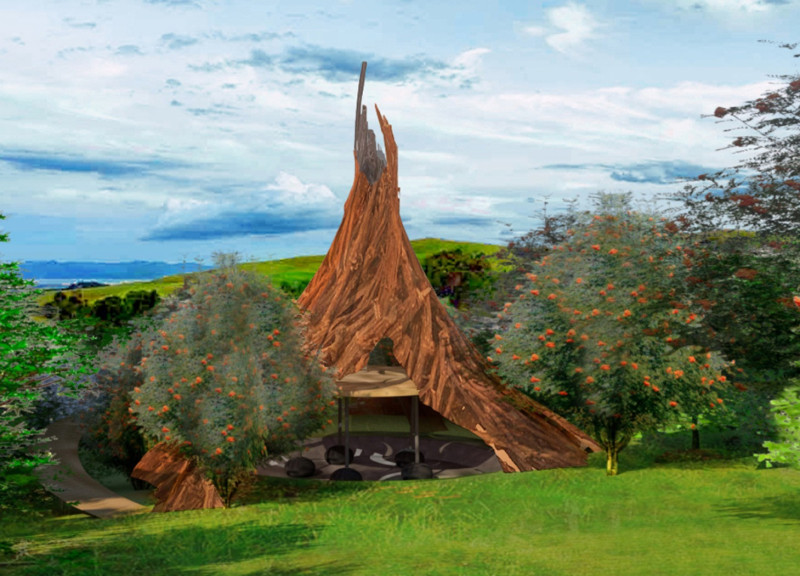5 key facts about this project
A Dialogue with Gravity is a design that offers a meditative space within a calm landscape. It promotes self-reflection through a thoughtful mix of architecture and nature. Situated among gentle hills and transitioning from a peaceful pond into a quiet forest, the meditation cabin aims to create an inviting atmosphere for personal contemplation. The central idea focuses on using gravity to enhance meditation, encouraging visitors to connect deeply with their surroundings.
Design Concept
The concept centers around a dialogue with gravity, exploring how the structure interacts with the forces of the Earth. The cabin is raised three meters above the ground, creating a feeling of elevation that heightens the meditative experience. This setup allows users to step away from daily distractions, fostering a greater awareness of their relationship with the natural environment.
Dynamic Interaction
A notable feature of the cabin is the "wobbling seat." This design engages users physically, allowing them to explore balance and stability while meditating. Each seat can move slightly but stabilizes when weight is applied. This interaction enhances focus and emphasizes the connection between individuals and the Earth.
Natural Elements
Light and fresh air play critical roles in shaping the cabin's atmosphere, thanks to openings in the shell roof. These features enable a relationship between light and shadow that changes throughout the day. The varying light conditions contribute to a calming environment, encouraging deeper engagement during meditation. Visitors can feel the influence of natural forces inside the space.
Material Selection
Driftwood and naturally bent wood are key materials in the design. They reflect an emphasis on sustainability and connect the project to the surrounding ecosystem. The use of driftwood represents a journey through nature, symbolizing growth and change. This careful choice of materials enriches the experience within the cabin and creates a sense of being grounded in the environment.
The shell roof's undulating shape mirrors the geological movements of the area, reinforcing the link between the structure and its site. Each element has been carefully considered, creating a space where visitors can engage in thoughtful reflection within an inviting natural setting.























































